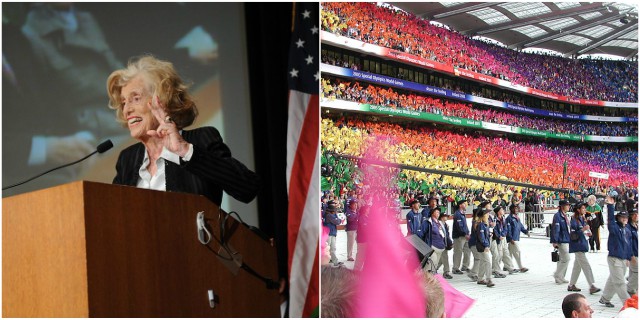You are the stars, and the world is watching you. By your presence, you send a message to every village, every city, every nation. A message of hope, a message of victory. The right to play on any playing field. You have earned it. The right to study in any school. You have earned it. The right to hold a job? You have earned it. The right to be anyone’s neighbor. You have earned it.
Eunice Kennedy Shriver to Special Olympians at the 1987 Special Olympics World Summer Games
A sister of President John F. Kennedy and Senators Robert F. Kennedy and Edward M. Kennedy, Eunice Kennedy Shriver was a member of one of the most prominent families in the United States.
Born in Brookline, Massachusetts, on July 10, 1921, the fifth of Rose and Joseph Kennedy’s nine children, Eunice attended the Convent of the Sacred Heart School in Noroton, Connecticut, and Manhattanville College, and received a B.S. degree in sociology from Stanford University.
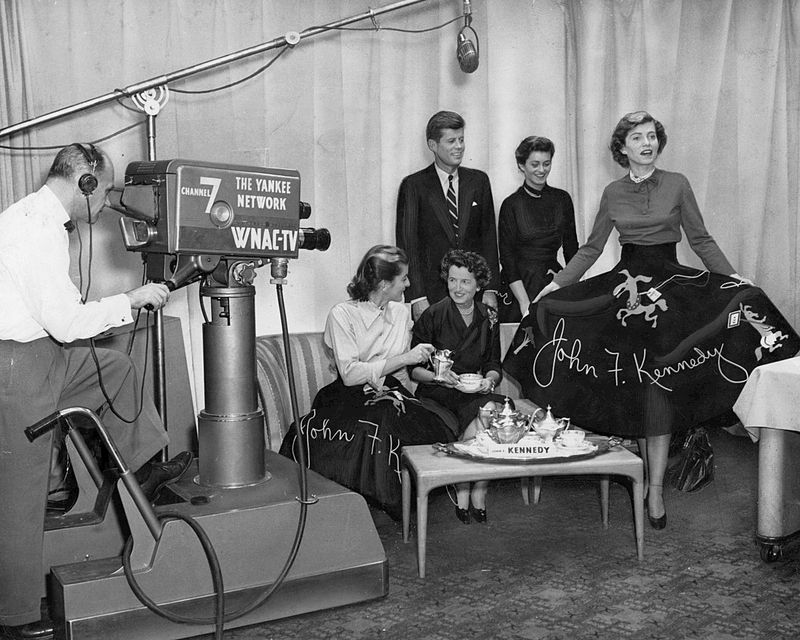
Her older sister Rosemary, who suffered from mental difficulties, had the greatest influence on Shriver’s formative years and later accomplishments. Keeping up with her bright siblings was difficult and frustrating for Rosemary, and her parents were told that she had learning difficulties and was unable to master the basics of reading and writing. Inspired by the struggle of her sister who worked very hard just to keep up with her and her siblings, Eunice was determined to do everything she could in order to change the way people perceived those who were mentally impaired and devoted her entire life to the cause.
In 1957, Eunice became director of the Joseph P. Kennedy, Jr. Foundation, established in 1946 as a memorial to her oldest brother, Joseph P. Kennedy, Jr., who had been killed in World War II. The foundation focused on the prevention of intellectual disabilities by identifying its causes and improving the means by which society deals with citizens who have intellectual disabilities.
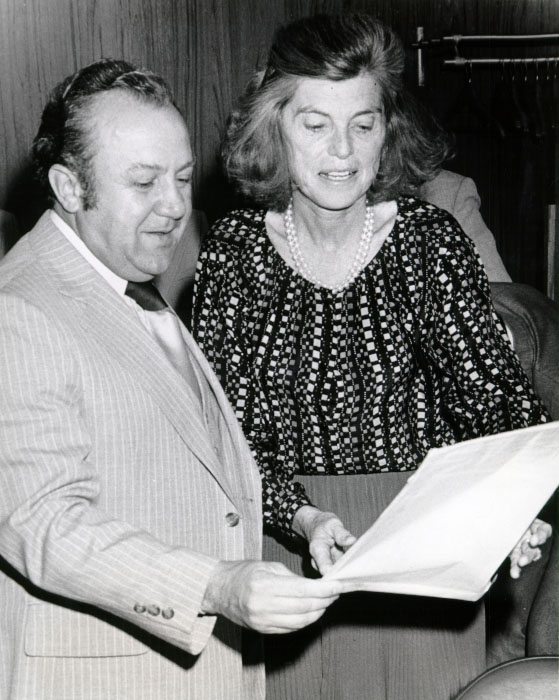
At the time when she became director of the Foundation, intellectual disability was considered to be a shameful disease, and people who had intellectual disabilities were often isolated. Shriver was about to change that.
Shriver advanced the cause of people with intellectual disabilities and helped establish the National Institute of Child Health and Human Development and the President’s Committee on Mental Retardation. She also helped in the establishment of many research centers now known as Eunice Kennedy Shriver Intellectual and Developmental Disabilities Research Centers at major universities throughout the United States, including Johns Hopkins, Harvard, and Stanford.
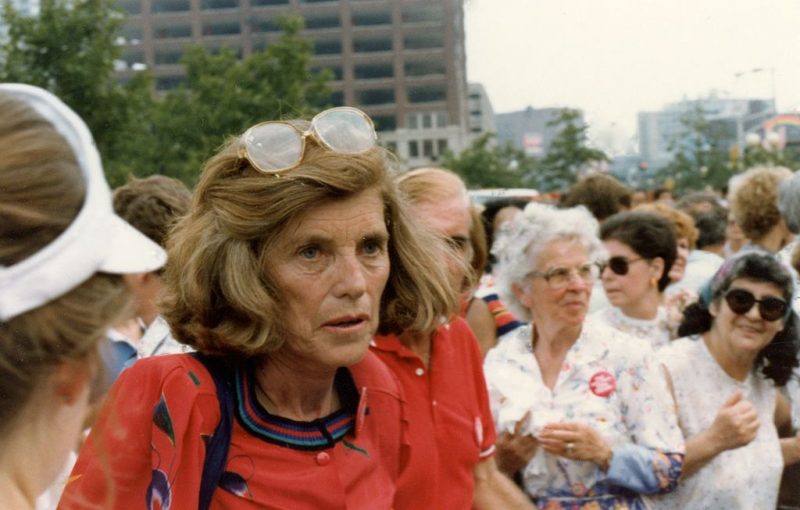
In 1962, she decided that it was time to go public with the story of her mentally disabled sister, Rosemary. She wrote an article titled “Hope for the Retarded Child,” which was published in The Saturday Evening Post. The article was a turning point in the treatment of people who had intellectual disabilities and encouraged many people to confront issues that until then had been largely hidden from society.
Earlier that year, she opened a summer camp for children mental disabilities. She was inspired by a mother who called her and complained that there were no summer camps where she could send her disabled child. She decided to start her own camp for children with developmental disabilities at her home in Maryland. This was what led her and her husband Robert Sargent Shriver, Jr., to start the Special Olympics.
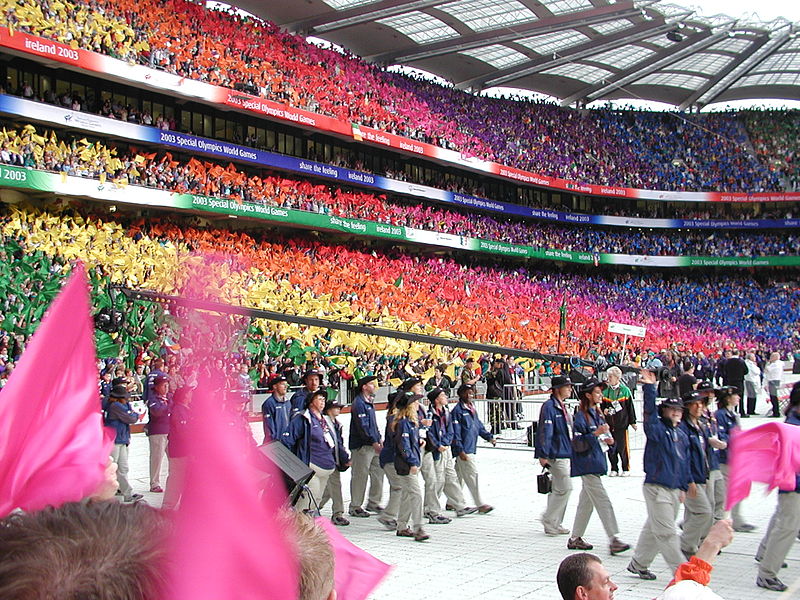
In 1968, just weeks after the assassination of Robert Kennedy, she opened the first national games in Chicago. More than 1,000 athletes with intellectual disabilities from 26 states and from Canada competed in athletics.
She opened the first Special Olympics Games with these words, “In ancient Rome, the gladiators went into the arena with these words on their lips: let me win, but if I cannot win, let me be brave in the attempt. Today, all of you young athletes are in the arena. Many of you will win. But even more important, I know you will be brave and bring credit to your parents and to your country. Let us begin the Olympics, thank you”.
Today, more than three million Special Olympic athletes in more than 150 countries participate in Special Olympics.
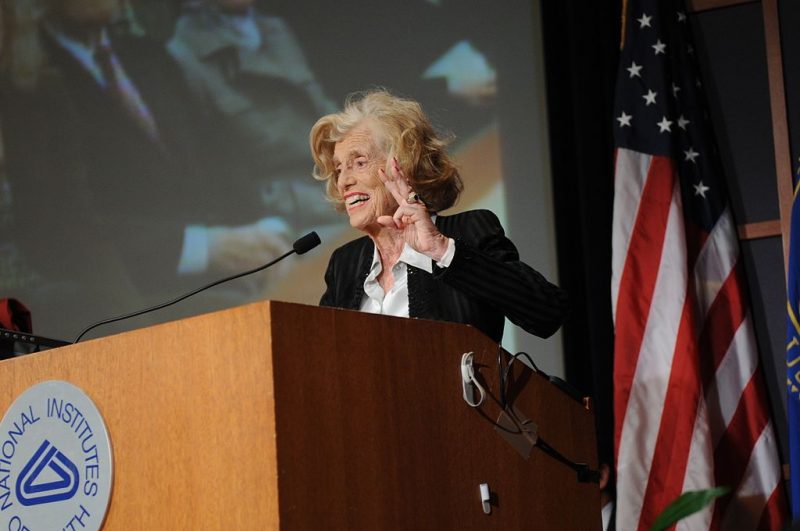
She continued to work to improve the lives of people with intellectual disabilities and received numerous honors and awards, including the Presidential Medal of Freedom, from Ronald Reagan in 1984.
As President Reagan said:
“With enormous conviction and unrelenting effort, Eunice Kennedy Shriver has labored on behalf of America’s least powerful people, those with mental retardation. Over the last two decades, she has been at the forefront of numerous initiatives on behalf of the mentally retarded, from creating day camps to establishing research centers, to the founding of the Special Olympics program. Her decency and goodness have touched the lives of many, and Eunice Kennedy Shriver deserves America’s praise, gratitude, and love”.
Eunice Kennedy Shriver died on August 11, 2009.
